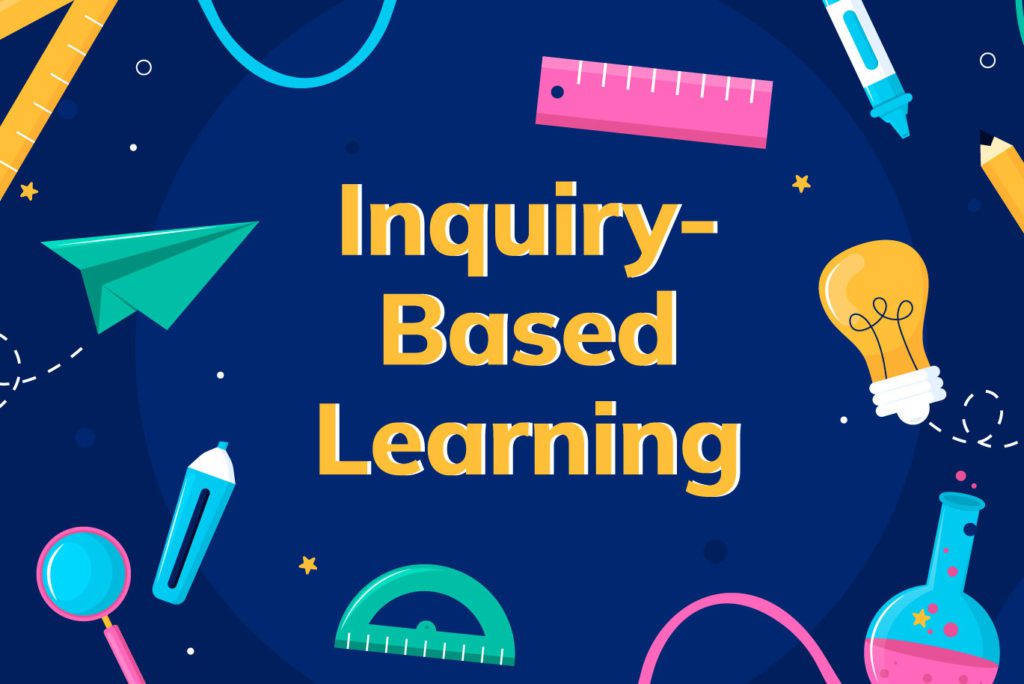What is inquiry based learning? Inquiry-Based Learning (IBL) is an unconventional approach to teaching that involves students actively participating in posing questions and bringing life experiences to them. The basic goal behind this method is to channel the thought process of the student through questions and help them with “How To Think” instead of “What To Think.”
This blog talks about what exactly the concept of inquiry based learning is, benefits and strategies associated with it.
What do you mean by inquiry based learning?

From teacher’s perspective
With inquiry based learning, teachers can shift their role from traditional lecturers to facilitators of learning. As a teacher, with inquiry based instructions, you can set a stage for your students’ curiosity and exploration rather than just delivering the facts and the figures.
Teachers can prepare engaging lessons, guide their students through this process and provide the necessary tools and resources to better explain the concept to them.
From student’s perspective
Inquiry based learning helps students become curious about the world around them. When we ask students to explore ideas and concepts, we help them discover the world on their terms. We give them the freedom to think critically and creatively.
Inquiry based instruction is an approach to teaching that encourages students to explore topics and concepts through questioning. Students are given opportunities to investigate topics on their own and then share what they’ve learned with others.
This approach helps students understand the material better because they’re actively engaged in the learning process.
Teaching is the most reputed profession. Why not scale your teaching and take it to an online platform? Get your own teaching app where you can connect with more students across the globe. To know more about it, connect with us and talk to our growth experts at Classplus to launch your app today!
Different types of inquiry based learning
So, moving forward with what is inquiry based learning, let us discuss different types of IBL. There are different types of inquiry based instructions, let us discuss some of the inquiry based learning example, such as:
1. Structured inquiry based learning
Structured inquiry is a teaching method that involves guiding students through a series of steps. Teachers ask questions and guide students through activities and assessments. Structured inquiry is often used in science classrooms because it helps students understand concepts and apply them to real-life situations.
2. Controlled inquiry
Another inquiry based learning example includes controlled inquiry is an approach to teaching that allows students to explore one question from many different questions. These questions come from multiple sources, including teachers, peers, and the internet. Teachers curate the questions, which allows them to focus on what they care about while still allowing students to explore topics that interest them.
3. Guided inquiry
Guided inquiry based learning approach help teachers introduce topics, and students begin to form their own questions about those topics. Students then choose their own resources to research those questions.
4. Free inquiry based learning
Students are free to explore any topic they choose. Teachers provide guidance and support, but students are responsible for designing their own lessons and assessing themselves.
Benefits of inquiry based instructions
IBL is an educational technique that encourages learners to learn via active exploration and investigation. This exciting and dynamic approach offers various advantages:
- IBL leads to enhanced engagement as it turns your classroom into an active space for learning and teaching. It boosts motivation in your students and makes the learning process fun and enjoyable for them.
- During inquiry based instruction, students are exposed to engaging material which leads to better understanding of the subject matter and helps students to retain the concept for a longer period of time.
- It also promotes critical thinking and problem solving skills in students.
- With different approaches of inquiry based instruction, teachers can develop a sense of responsibility in their students.
- Inquiry based learning also includes different activities like, group discussions, collaboration, debate etc. which leads to improving communication and collaboration skills in your students.
- It allows a more personalized approach to education by providing different teaching and learning styles and abilities in the classroom.
How can teachers implement inquiry based learning in their classroom?
Now that you are aware of what is inquiry based learning, let us understand how teachers can implement this strategy in their classroom. This can be answered with four basic steps that should form an outline of a simple unit:
- Have students develop a problem statement that will require them to pitch their question in a constructed response, further inquiries, and citations.
- Research the topics using time in class. Make sure there is some classwork, so students have the opportunity to research independently. You aren’t going to do the work, but you are going to provide guidance and modeling of reliable methods of researching.
- Ask Them To Reflect On What Worked And What Didn’t. Reflection is key! And it’s not just about asking them to reflect on their opinions of the topic. It’s also about reflecting on the process. That’s where we can work in metacognitive thinking—thinking about thinking.
- Essential components of inquiry-based learning include orientation, question development, investigation, conclusion, and discussion.
- Learning something new requires practice and repetition. Students need to be able to retain the information learned. Inquiry-based learning helps students understand concepts better because they are actively engaged in solving problems.
- Inquiry-based lessons allow students to take center stage. Students are given a chance to explore problems and solutions in their own way.
Final Thoughts
Teacher training and professional development are important to support students’ success in inquiry based learning. Studies show that teacher training and professional development help teachers feel confident about implementing inquiry-based learning.
Students hugely benefit from teachers who understand the value of inquiry learning in the classroom. Hope this blog helps you to understand what is inquiry based learning. Happy teaching!
What is inquiry based learning FAQs
A1. Inquiry-Based Learning is an educational approach where students learn by asking questions, conducting investigations, and using the findings to understand a particular subject matter.
A2. The key characteristics of inquiry based learning are active student participation, curiosity-driven learning, critical thinking and problem-solving skills development in students etc.
A3. Yes, there are several types ranging from more teacher-directed to more student-directed approaches (Guided Inquiry and Open Inquiry).
A4. Assessment in inquiry based learning can involve alternative methods such as project-based evaluations, presentations, or reflective writing.




